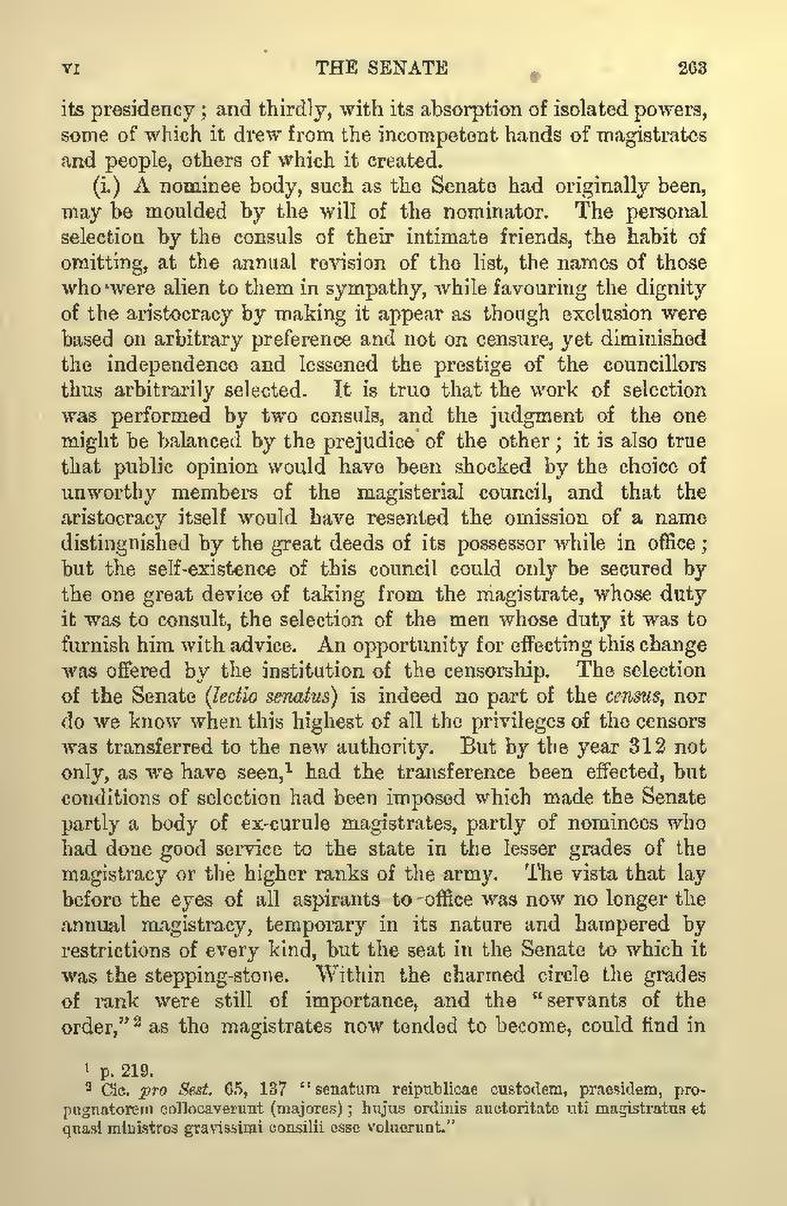its presidency; and thirdly, with its absorption of isolated powers, some of which it drew from the incompetent hands of magistrates and people, others of which it created.
(i.) A nominee body, such as the Senate had originally been, may be moulded by the will of the nominator. The personal selection by the consuls of their intimate friends, the habit of omitting, at the annual revision of the list, the names of those who were alien to them in sympathy, while favouring the dignity of the aristocracy by making it appear as though exclusion were based on arbitrary preference and not on censure, yet diminished the independence and lessened the prestige of the councillors thus arbitrarily selected. It is true that the work of selection was performed by two consuls, and the judgment of the one might be balanced by the prejudice of the other; it is also true that public opinion would have been shocked by the choice of unworthy members of the magisterial council, and that the aristocracy itself would have resented the omission of a name distinguished by the great deeds of its possessor while in office; but the self-existence of this council could only be secured by the one great device of taking from the magistrate, whose duty it was to consult, the selection of the men whose duty it was to furnish him with advice. An opportunity for effecting this change was offered by the institution of the censorship. The selection of the Senate (lectio senatus) is indeed no part of the census, nor do we know when this highest of all the privileges of the censors was transferred to the new authority. But by the year 312 not only, as we have seen,[1] had the transference been effected, but conditions of selection had been imposed which made the Senate partly a body of ex-curule magistrates, partly of nominees who had done good service to the state in the lesser grades of the magistracy or the higher ranks of the army. The vista that lay before the eyes of all aspirants to office was now no longer the annual magistracy, temporary in its nature and hampered by restrictions of every kind, but the seat in the Senate to which it was the stepping-stone. Within the charmed circle the grades of rank were still of importance, and the "servants of the order,"[2] as the magistrates now tended to become, could find in
